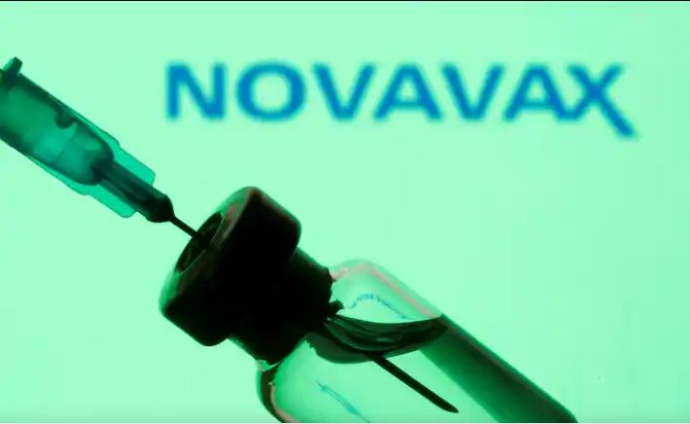A coronavirus vaccine made by Maryland biotech company Novavax proved effective at stopping symptomatic infections in global hot spots where concerning variants are dominant, the company announced Thursday.
But warning signs lurked amid those findings: The protective effect of the vaccine was substantially muted in South Africa, where a worrisome virus variant is in wide circulation.
The data, presented by a company news release, is ominous news for other vaccine developers.
They have been scrambling to determine whether current vaccines would remain effective against the variant found in South Africa and are designing new versions in case the virus can break through the protection provided by the shot.
The data is the first, highly anticipated evidence of how well a vaccine performs against variants that have drawn global concern.
The company also noted that a third of the participants in its South African trial appeared to have already been infected with the original strain of coronavirus, based on antibodies in their blood when they were vaccinated.
Some of those people became infected again, according to the company, suggesting natural immunity generated by an infection might not fully protect against the new variant.
“The South African variant is looking like it’s going to be a far more complicating factor than we had hoped,” said Peter Jay Hotez, dean for the National School of Tropical Medicine at Baylor College of Medicine. Hotez is developing a different coronavirus vaccine and said his team has already designed one against the South African variant.
In a United Kingdom trial, where the B.1.1.7 variant has become dominant, the vaccine was 89 percent effective, and about half the infections were with the variant.
In a smaller and less definitive South African trial, where nearly all the participants who got sick were infected with the variant first identified in that nation, the vaccine was 49 percent effective. But the company underscored that when looking only at people not infected with HIV, the efficacy was 60 percent.
“I think the constructs for all current vaccines are similar; thus, I will expect similar results,” said David Ho, a professor of microbiology and immunology at Columbia University.
Laboratory tests had suggested that the immune response elicited by vaccines made by Moderna and Pfizer-BioNTech would be diminished against the variant first identified in South Africa.
A 49 per cent effective vaccine against a particularly difficult variant could still hold merit - the Food and Drug Administration had drawn the line for efficacy at 50 per cent - but it clearly speeds up the urgency in developing a vaccine targeting the variant.
“It really signals that we really can’t take it for granted that these vaccines will work as well against all variants and that we need to really have systems in place that allow us to monitor them, just like how we monitor [to make] flu vaccine every year,” said Natalie Dean, an epidemiologist at the University of Florida.
Novavax began developing a new version of its vaccine targeting the South African variant in January and expects to select a design and begin small-scale production within weeks, chief executive Stanley Erck said, with trials to begin in the second half of the year.
Novavax is one of the vaccines supported by the American government, including $1.6 billion for clinical development and a pre-purchase of 100 million doses. A large Phase 3 trial is ongoing in North America.
“The 60 percent reduced risk against COVID-19 illness in vaccinated individuals in South Africans underscores the value of this vaccine to prevent illness from the highly worrisome variant currently circulating in South Africa, and which is spreading globally,” said Shabir Maddi, executive director of the Vaccines and Infectious Diseases Analytics Research Unit at Wits University and a principal investigator in the Novavax coronavirus vaccine trial in South Africa.
“This is the first COVID-19 vaccine for which we now have objective evidence that it protects against the variant dominating in South Africa,” Maddi said in a statement.
Data from a late stage trial of a Johnson & Johnson vaccine candidate, which was partly conducted in South Africa and Brazil, is expected within days and will provide greater clarity about how the current vaccines perform against variants
Latest Stories
-
Trump announces 35% tariffs on Canada
3 hours -
UK to return some migrants to France within weeks – PM
3 hours -
Six things Trump should know about Liberia after he praised leader’s ‘good English’
4 hours -
Judge blocks Trump’s birthright order after Supreme Court ruling
4 hours -
The US helped successfully tackle Aids – now cuts put that at risk
4 hours -
IFMA Ghana launches student chapter at Sunyani Technical University, inaugurates Department of Architecture and Real Estate
5 hours -
Ghana leaves mark at inaugural International Cybersecurity Olympiad in Singapore
5 hours -
Standard Chartered declares dividend at 55th Annual General Meeting
5 hours -
Prudential Bank, UnionPay International intensify customer engagement to boost card usage in China for traders
5 hours -
Ablakwa’s Diplomacy, Antwi’s Partisanship, and Kubi’s Statesmanship
6 hours -
Tottenham unveil Mohammed Kudus after completing move from West Ham
6 hours -
WAFCON 2024: Black Queens must be at their best against Mali – Kim Björkegren
7 hours -
Ablekuma North: Someday others will fly because you walked – Akosua Manu to Akua Afriyie amid EC rerun decision
7 hours -
Hungary, Switzerland and India explore mining partnership with Lands Ministry
7 hours -
Akufo-Addo/Bawumia government’s major gains in TVET transformation highlighted
7 hours

